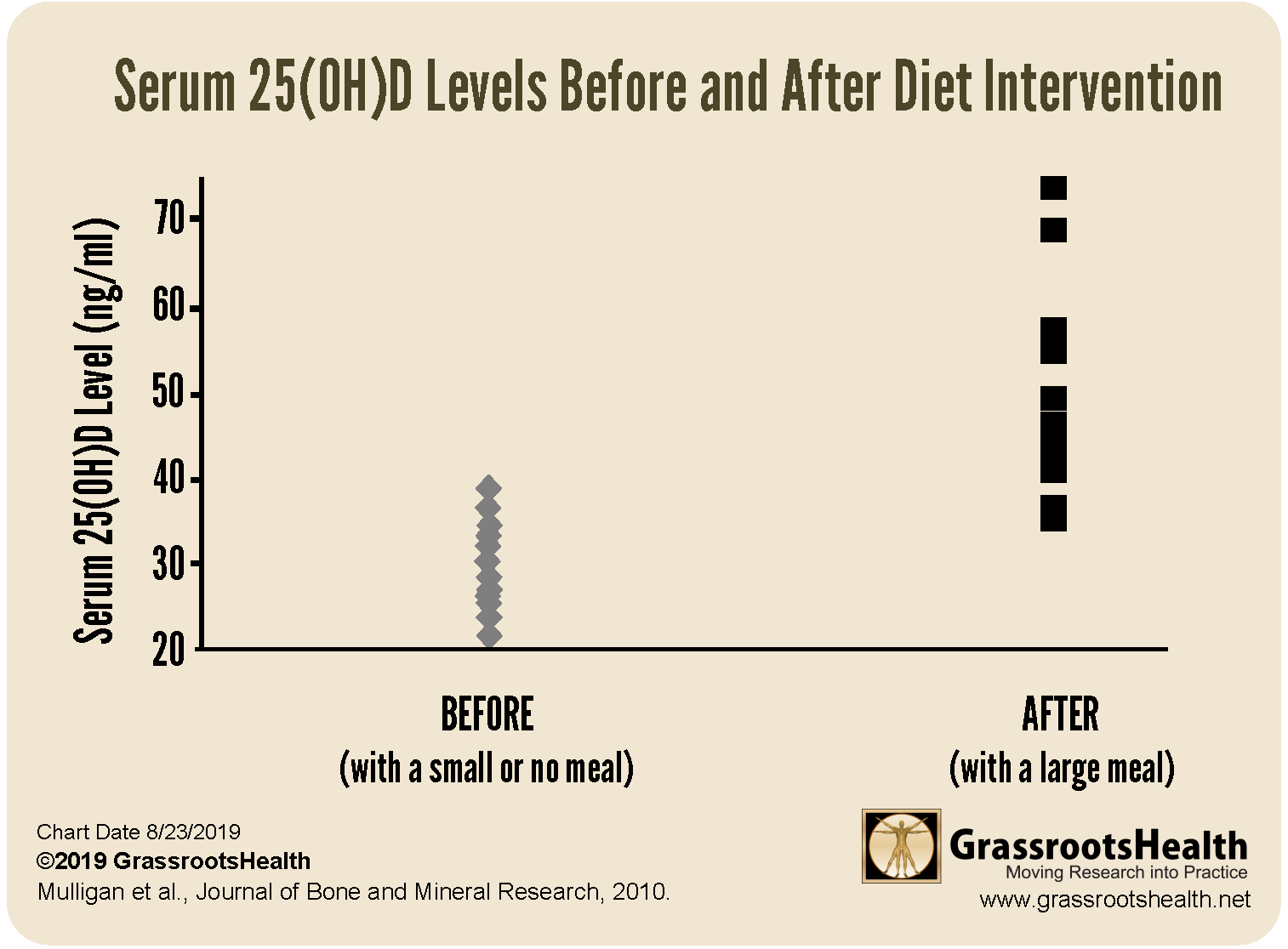Published on August 26, 2019
 GrassrootsHealth often highlights the importance of testing nutrient levels (especially vitamin D, omega-3s and magnesium) in order to know if supplementation is working to achieve a target nutrient level. This is due to the large variation in individual response to supplementation, such as shown in the dose-response curve for vitamin D. There are several factors that can influence the dose-response, one of which is digestion and whether supplements are taken with a meal.
GrassrootsHealth often highlights the importance of testing nutrient levels (especially vitamin D, omega-3s and magnesium) in order to know if supplementation is working to achieve a target nutrient level. This is due to the large variation in individual response to supplementation, such as shown in the dose-response curve for vitamin D. There are several factors that can influence the dose-response, one of which is digestion and whether supplements are taken with a meal.
Taking Vitamin D with Meals
Several studies have confirmed that taking vitamin D supplements with a meal is important. One study of 17 individuals by Mulligan et al. found that taking vitamin D with the largest meal of the day resulted in an average 57% increase in 25(OH)D serum levels compared to when taken on an empty stomach or with a small meal. Participants, who had all been taking a vitamin D supplement, were instructed to continue with their current supplement but to take it with their largest meal of the day, usually supper, rather than on an empty stomach or with a smaller meal as they had been doing. After 2-3 months, their vitamin D serum levels were measured and compared to baseline. Before switching to supplementing with the largest meal, the average vitamin D level was 31 ng/ml. After switching, the average vitamin D level was 47 ng/ml (P<.01).
Are you getting enough vitamin D?
Testing your vitamin D level regularly and taking daily steps to keep it at a target level of 40-60 ng/ml (100-150 nmol/L) is important for all stages of health. Find out your levels today! Log on to the shop (click the link below) to get your tests and see for yourself if your level can be improved.
Make sure you track your results before and after, about every 6 months!
How can I track my nutrient intake and levels over time?
To help you track your supplement use and nutrient levels, GrassrootsHealth has created an online tracking system called myData-myAnswers. For each specific supplement, you can track what days you take it, how much, and many other details. This will help you know your true supplemental intake and what patterns of use work for you to reach and maintain optimum nutrient levels. Check it out today!







